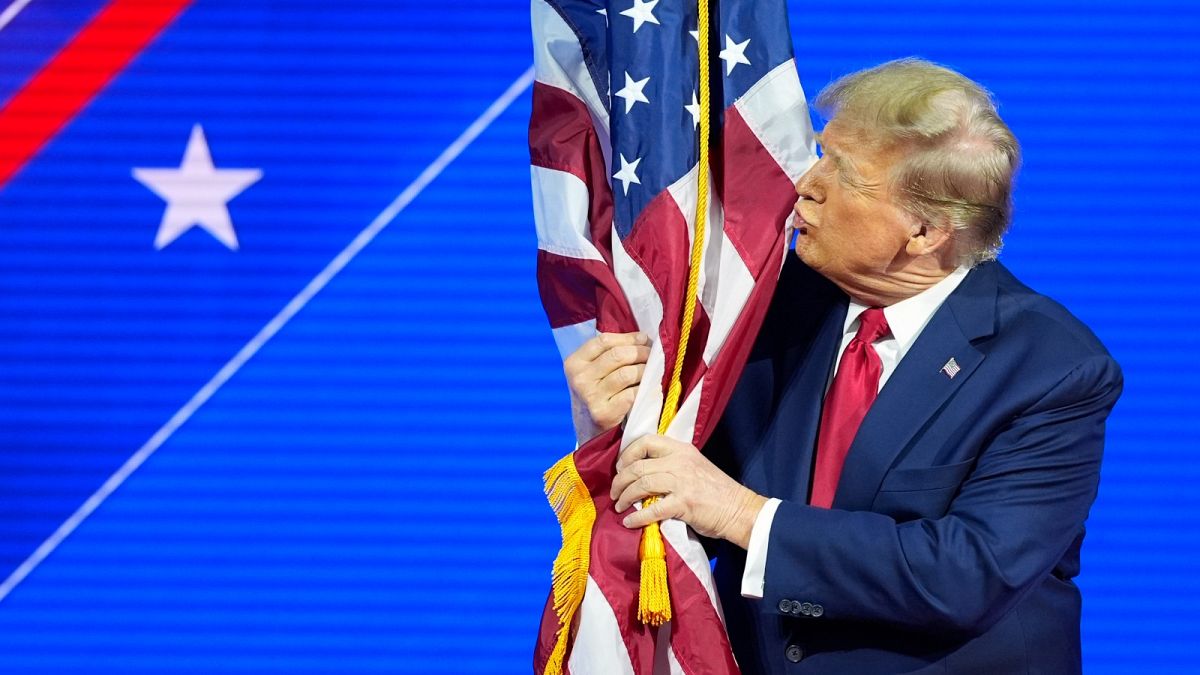The political comeback of Donald Trump in the United States has sparked both celebrations and concerns among European leaders. While some populist politicians see Trump’s victory as a political victory, experts warn that it may not necessarily benefit them in the long run. Hungarian Prime Minister Viktor Orbán and Italy’s deputy prime minister Matteo Salvini have both welcomed Trump’s win, believing it will be advantageous for their countries. However, experts caution that Trump’s “America First” agenda may prioritize US interests over those of European nations, leaving leaders like Orbán and Salvini without any real benefits.
The impact of Trump’s victory on Europe is expected to be far-reaching, particularly in areas such as business, defense, and security. French President Emmanuel Macron has expressed neutrality on the matter, stating that Trump was elected to defend American interests, not European ones. Concerns have been raised over the future of US support for Ukraine and NATO, with Trump’s rhetoric encouraging Russia to attack countries not meeting defense spending requirements. Overall, experts believe that Trump’s presidency may ultimately be harmful to Europe, from potential tariffs on imports to a destabilizing influence on the region.
Despite some European leaders expressing support for Trump, there are concerns that his administration may seek to exploit divisions within the European Union. Trump’s transactional style of politics may lead to countries negotiating bilateral agreements that could undermine EU unity. Preventing such division will be a key challenge for the European Commission as they navigate relations with the incoming US administration. While Trump’s win may temporarily boost the popularity of populist right-wing parties in Europe, experts question the long-term implications of the US-Europe relationship under his leadership.
The election of Donald Trump as US president has drawn mixed reactions from European leaders, with some seeing potential benefits in aligning themselves with his administration. Hungarian Prime Minister Viktor Orbán and Italy’s deputy prime minister Matteo Salvini have both welcomed Trump’s win, believing it will strengthen their positions in Europe. However, experts caution that the US under Trump may not prioritize European interests, leading to potential economic and diplomatic challenges for countries in the region. As European leaders seek to define their relationship with the incoming US administration, concerns remain about the future of transatlantic relations under Trump’s presidency.
In conclusion, the election of Donald Trump as US president has raised a mix of hopes and concerns among European leaders. While some see opportunities to strengthen their positions in Europe through aligning with Trump’s administration, others warn of potential economic and diplomatic challenges ahead. With Trump’s “America First” agenda likely to prioritize US interests over those of European nations, leaders face the task of navigating a complex relationship with the incoming US administration. As Europe grapples with the implications of Trump’s victory, the future of transatlantic relations remains uncertain, with key questions surrounding business, defense, and security in the region.











